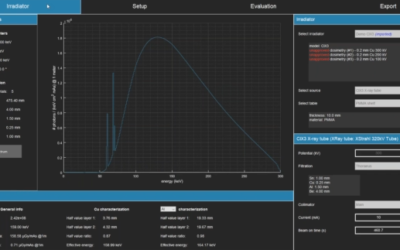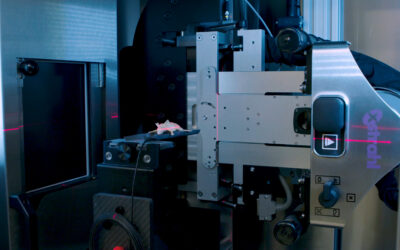In many European countries, patients with a variety of chronical inflammatory diseases are treated with low-dose radiotherapy (LD-RT). In contrast to high-dose irradiation given to tumor patients, little is known about radiobiological mechanisms underlying this clinical successful LD-RT application.
The objective of the study “Modulation of Inflammatory Reactions by Low-Dose Ionizing Radiation: Cytokine Release of Murine Endothelial Cells Is Dependent on Culture Conditions” Sabine Schröder, Stephan Kriesen, Daniel Paape, Guido Hildebrandt, and Katrin Manda was to gain a better insight into the modulation of inflammatory reactions after LD-RT on the basis of endothelial cells (EC) as major participants and regulators of inflammation.
Three murine EC lines were cultivated under 2D and 3D culture conditions and irradiated with doses from 0.01 Gy to 2 Gy using an Xstrahl 200. To simulate an inflammatory situation, cells were activated with TNF-α. After LD-RT, a screening of numerous inflammatory markers was determined by multiplex assay, followed by detailed analyses of four cytokines (KC, MCP-1, RANTES, and G-CSF). Additionally, the monocyte binding to EC was analyzed.
They found that concentrations were dependent on culture condition, IR dose, time point after IR, and EC origin. IR caused nonlinear dose-dependent effects on secretion of the proinflammatory cytokines KC, MCP-1, and RANTES. The monocyte adhesion was significantly enhanced after IR as well as activation. It was concluded that LD-RT, also using very low radiation doses, has a clear immunomodulatory effect on EC as major participants and regulators of inflammation.
This Xstrahl In Action was adapted from a article found on a National Library of Medicine website.







